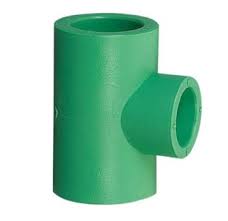Sep . 29, 2024 21:01 Back to list
Flexible HDPE Irrigation Pipe Solutions for Efficient Water Management Systems
Understanding HDPE Flexible Irrigation Pipe Products
Irrigation plays a crucial role in agriculture, ensuring that crops receive the necessary water for optimal growth and yield. Among various irrigation systems, High-Density Polyethylene (HDPE) flexible irrigation pipe products have gained popularity due to their durability, flexibility, and cost-effectiveness. This article delves into the features, benefits, applications, and overall importance of HDPE flexible irrigation pipes in modern agriculture.
What is HDPE?
High-Density Polyethylene (HDPE) is a thermoplastic polymer made from petroleum. Its robustness and resistance to various chemicals make it an ideal material for a range of applications, including packaging, plastic bottles, and, notably, irrigation systems. HDPE pipes are known for their lightweight yet strong properties, making them easier to install and maintain compared to traditional materials like metal or concrete.
Characteristics of HDPE Flexible Irrigation Pipes
1. Flexibility One of the standout features of HDPE irrigation pipes is their flexibility. Unlike rigid pipes, HDPE can bend and curve, allowing it to adapt to various landscape contours without the need for extensive fittings or joints. This quality not only simplifies the installation process but also reduces potential leak points.
2. Durability HDPE pipes are designed to withstand harsh environmental conditions. They resist corrosion, which is often a problem with metal pipes, ensuring a longer lifespan. Additionally, they can endure extreme temperatures without cracking or becoming brittle, making them suitable for diverse climates.
3. Chemical Resistance HDPE flexible irrigation pipes exhibit excellent resistance to acids, bases, and other chemicals commonly found in agricultural processes. This characteristic ensures that the pipes maintain their integrity and performance even when exposed to challenging substances.
4. Lightweight The lightweight nature of HDPE makes it easier to transport and install. Farmers and contractors can handle longer lengths of piping without needing heavy machinery, thereby reducing overall project costs.
5. Cost-Effectiveness Although the initial investment might be higher than traditional materials, the long-term savings associated with reduced maintenance, lower energy costs, and extended lifespan make HDPE a cost-effective choice for irrigation systems.
hdpe flexible irrigation pipe products

Benefits of Using HDPE Flexible Irrigation Pipes
1. Water Efficiency Proper irrigation is critical for water conservation in agriculture. HDPE pipes allow for precise water delivery directly to the root zone of plants, minimizing water waste and enhancing crop yield.
2. Reduced Labor Costs The ease of installation and maintenance of HDPE pipes can lead to significant labor savings. As these pipes are lightweight and flexible, fewer workers are needed for assembly, and their durability reduces the frequency of repairs.
3. Sustainability Given the increasing emphasis on sustainable farming practices, HDPE pipes are a step in the right direction. Their recyclability and long lifespan contribute to reducing the ecological footprint of agricultural activities.
4. Versatility HDPE flexible irrigation pipes can be used in various irrigation systems, including drip, sprinkler, and surface irrigation. This versatility makes them suitable for various crops and farming techniques, from small gardens to large commercial farms.
Applications in Agriculture
HDPE irrigation pipes are widely used in several agricultural applications, including
- Drip Irrigation Systems By delivering water directly to the plant roots, drip systems help in optimizing water usage and ensuring efficient nutrient absorption. - Sprinkler Systems HDPE pipes can also be utilized in sprinkler irrigation, providing a uniform distribution of water across fields. - Surface Irrigation In surface irrigation setups, HDPE pipes can help channel water efficiently across large areas.
Conclusion
HDPE flexible irrigation pipes have revolutionized the way water is delivered in agricultural practices. Their unique combination of flexibility, durability, and cost-effectiveness makes them an ideal choice for farmers aiming to improve efficiency and sustainability in their operations. As agriculture continues to evolve, investing in advanced irrigation technologies like HDPE pipes will be pivotal in fostering sustainable farming practices, addressing water scarcity, and ultimately enhancing food production for a growing global population. In this context, HDPE flexible irrigation pipes stand out as a crucial component for the future of agriculture.
-
High-Quality PVC Borehole Pipes Durable & Versatile Pipe Solutions
NewsJul.08,2025
-
High-Quality PVC Perforated Pipes for Efficient Drainage Leading Manufacturers & Factories
NewsJul.08,2025
-
High-Quality PVC Borehole Pipes Durable Pipe Solutions by Leading Manufacturer
NewsJul.08,2025
-
High-Quality PVC Borehole Pipes Reliable PVC Pipe Manufacturer Solutions
NewsJul.07,2025
-
High-Quality UPVC Drain Pipes Durable HDPE & Drain Pipe Solutions
NewsJul.07,2025
-
High-Quality Conduit Pipes & HDPE Conduit Fittings Manufacturer Reliable Factory Supply
NewsJul.06,2025

